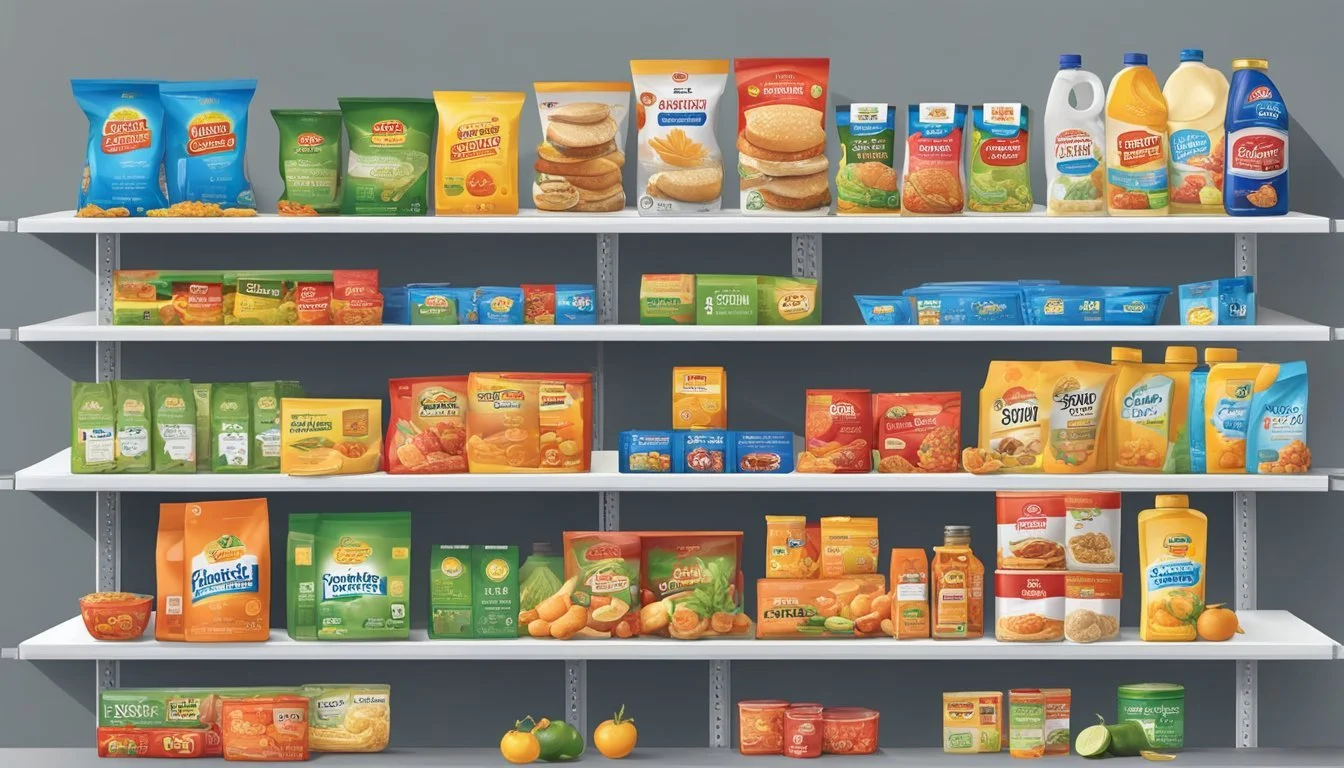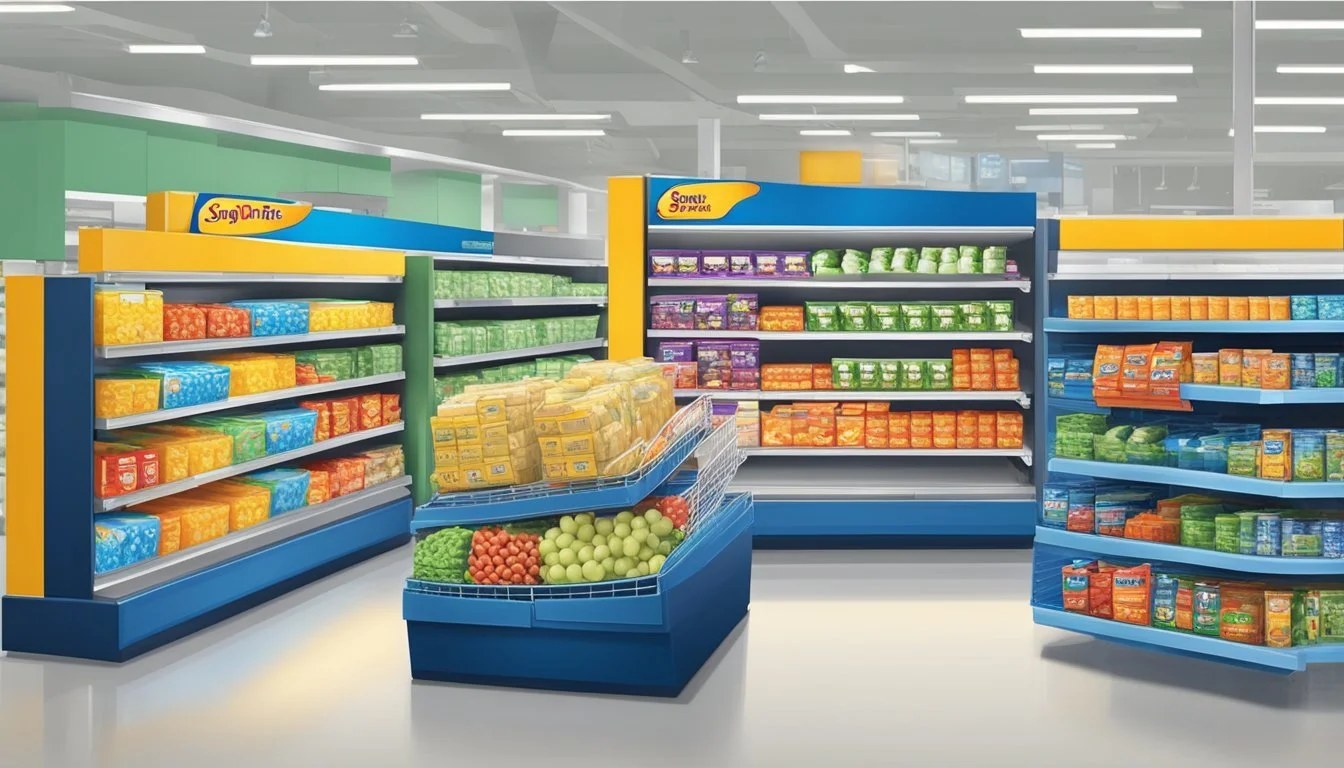Is Sam's Club Cheaper Than ShopRite?
Analyzing Grocery Pricing Strategies
Part of Our Grocery Store Guide with Details on Sam's Club Prices and ShopRite Prices
When comparing prices and value between Sam's Club and ShopRite, consumers are often looking for the most cost-effective shopping experience. The assumption that all products at warehouse clubs like Sam's Club come with a lower price tag can be misleading. Individual item prices can vary, and some may cost more than they do at other grocery stores. Understanding which items are truly cheaper at Sam's Club requires a detailed look at their pricing compared to competitors such as ShopRite.
ShopRite, a supermarket chain with numerous locations, offers a different shopping experience from Sam's Club. Where Sam's Club is a membership-based warehouse offering bulk quantities, ShopRite serves shoppers on a regular retail scale. The pricing strategies and range of products differ between the two retailers, and a savvy shopper must factor in these differences when seeking the best value. It's not just a matter of comparing sticker prices but also considering the quantity, quality, and range of products available at each store.
Thus, determining whether Sam's Club offers lower prices than ShopRite requires a nuanced understanding of value based on product selection, shopping preferences, and customer needs. Evaluating both price and quality factors across various categories can help provide a clearer picture of which retailer might offer the better deal for a shopper's specific situation.
Membership Clubs Overview
Membership clubs like Sam's Club offer customers the opportunity to access a wide range of products at discounted prices in exchange for an annual fee. These clubs typically operate on a large scale, providing significant savings on bulk items.
Understanding Warehouse Clubs
Warehouse clubs are retail stores that sell a wide variety of merchandise. They operate on a members-only basis, where members pay an annual fee to access the store's products. These clubs emphasize savings and value on bulk purchases, catering to both individuals and businesses. The savings can extend across a spectrum of categories, including groceries, electronics, office supplies, and more.
Membership Fees and Structures
Memberships at warehouse clubs like Sam's Club generally come in two tiers: a basic membership and a Plus membership.
Basic Membership: Usually grants access to the warehouse club and standard discounts.
Plus Membership: Offers additional benefits such as higher levels of discounts, cashback on purchases, and often includes ancillary services such as pharmacy and optical discounts.
Here's a breakdown of the membership structures:
Membership Type Annual Fee Notable Benefits Basic $45 Access to discounts, bulk pricing Plus $100 Extra discounts, cashback, special services
Both levels allow members to make significant savings on a large assortment of products, which can potentially offset the annual fee through the discounts received throughout the membership period.
Pricing Strategy Comparison
In assessing the relative cost-efficiency of Sam's Club versus ShopRite, pricing strategies play a pivotal role, influencing how consumers perceive value. This section breaks down how each retailer benchmarks prices and the factors contributing to price variation.
Benchmarking Prices
Sam's Club, owned by Walmart, leverages the buying power of its parent company to price items competitively. The retailer is known for offering products in bulk, which often lowers the unit cost for consumers. In comparison, ShopRite prices may not consistently match Sam's Club on a per-unit basis due to lower volumes and different sourcing strategies.
Sam’s Club: Lower unit cost due to bulk buying
ShopRite: Prices individual items, may not provide the same bulk savings
Price Variation Factors
Several factors affect price variations between Sam's Club and ShopRite:
Membership Costs: Sam's Club requires an annual membership, which grants access to wholesale prices.
Store Brands: Sam's Club benefits from Walmart's private brands like Great Value, potentially undercutting prices, whereas ShopRite offers its own store brands, which aim to be cost-efficient.
Bulk Versus Individual Purchases: Consumers at Sam's Club generally buy in larger quantities, leading to a lower unit cost, while ShopRite caters to customers seeking individual items.
Competition: Both retailers may adjust pricing in response to competitors like Costco or Aldi.
Membership: Factors into consumer's overall savings at Sam's Club.
Store Brands: Influence the pricing structure of both retailers.
Purchase Quantity: Impacts the price-per-unit at each store.
Market Competition: Both Sam's Club and ShopRite must consider other discount retailers when strategizing prices.
Product Assortment and Selection
When considering shopping at Sam's Club versus ShopRite, the range of brands and categories of products available is a crucial factor for consumers to consider.
Brand Variety
Sam's Club, known for its connection to Walmart, offers a vast array of items under its exclusive store brands such as Member's Mark. Shoppers can find a wide variety of grocery items, including meat, dairy, and produce, alongside electronics and household goods under this private label. In contrast, ShopRite boasts a selection of numerous national and regional brands, providing customers with diverse options.
Product Categories
In terms of product categories, both retailers offer an extensive selection to address consumer needs. Sam's Club holds an advantage in bulk items and larger quantities which is typical of warehouse clubs. The store's product categories range from fresh fruit and vegetables to high-quality meat and seafood, including organic and premium options.
ShopRite, on the other hand, presents a traditional grocery store layout with a strong emphasis on grocery categories. They offer an expansive range of grocery items, including fresh produce, meat, dairy products, and household essentials. They also provide a variety of specialty items and cater to a more diverse set of dietary needs with organic, gluten-free, and international food selections.
Exclusive Deals and Discounts
In comparing Sam's Club and ShopRite, one must consider the variety of exclusive deals and discounts each retailer offers to their customers, which can significantly affect overall savings.
Membership-Only Offers
Sam's Club operates on a membership model, providing two tiers: the standard and the Plus memberships. The standard membership is typically priced at $25 annually, offering basic access to store discounts and deals. The Plus membership—costing $110 a year—affords additional benefits, such as free shipping, early shopping hours, and extra discounts on pharmacy and optical services. ShopRite also provides savings but does not require a membership for purchase.
Sam's Club Membership Cost / Year Exclusive Benefits Standard $25 Discounts on products and select services Plus $110 Free shipping, early hours, pharmacy/optical discounts
Seasonal Sales Analysis
Both retailers participate in seasonal sales; however, Sam's Club often has a more extensive range of items available in bulk, which can lead to significant savings during these events. They offer a variety of seasonal deals, especially around holidays, where they discount a wide array of products. ShopRite also offers seasonal sales, focusing on providing discounts on groceries and household items. Analysis of past sales reveals that while ShopRite presents consistent week-to-week savings, Sam's Club's larger discounts during seasonal sales can result in higher savings, provided customers are looking to buy in bulk.
Retailer Sales Focus Savings Potential Sam's Club Bulk items, seasonal/holiday Higher on bulk purchases ShopRite Groceries, household items Consistent weekly deals
Shopping Experience
When comparing shopping experiences between Sam's Club and ShopRite, customers will find distinctive features that cater to different preferences. Sam's Club offers a streamlined process with technology integrations, while ShopRite provides a traditional shopping experience that varies by location.
In-Store Shopping Experience
At Sam's Club, the in-store experience is enhanced by the Scan & Go feature, available through their mobile app. This tool allows customers to scan items as they shop and pay directly from their phone, reducing checkout time. Additionally, Sam's Club locations tend to provide a vast, warehouse-style shopping environment. Customers should be prepared for bulk purchasing, which is a trademark of warehouse clubs.
ShopRite stores, on the other hand, offer a conventional supermarket layout. Customers will likely find a more familiar and localized experience, with stores catering to the product preferences and needs of the surrounding community. Shopping at ShopRite does not typically involve bulk purchases, as seen in Sam's Club, making it a preferable option for customers seeking regular-sized items.
Online Shopping Conveniences
Sam's Club provides several online conveniences for a more efficient shopping experience. Customers can use the Sam's Club website or app to create a shopping list, check the availability of items, or arrange for a pickup. Additionally, Sam's Club offers free shipping on most items for Plus members, adding value for those who prefer shopping online.
At ShopRite, customers also have the option to shop online through their website, with functionalities supporting the creation of shopping lists and scheduling of pick-ups or deliveries. While ShopRite may not universally offer free shipping, they provide digital coupon integration and online shopping deals quite frequently, benefiting those who take the time to navigate their digital offerings.
Ancillary Services and Benefits
Sam's Club offers a range of ancillary services and benefits that go beyond traditional retail offerings. Members can take advantage of various non-retail services and additional perks, which enhance the overall value of their membership.
Additional Membership Perks
Gasoline: Members enjoy access to Sam's Club fuel stations, typically offering lower prices on gasoline.
Pharmacy: The in-store pharmacies provide members with prescription services, often at competitive prices.
Optical: Optical centers offer eye exams and sell prescription glasses and contact lenses.
Cafe: Many locations feature a café where members can purchase food items at a low cost.
Non-Retail Services
Tires: Sam's Club provides tire installation and maintenance services, including branded tires at discounted rates.
Electronics: Members have access to a broad selection of electronics with extended warranties and tech support services.
Additional Services: Select locations may offer other services such as photo printing and financial services.
By integrating these services, Sam's Club creates a comprehensive shopping experience. While the costs of these services may not always be lower than specialized retailers, the convenience factor and bundled savings can be substantial for club members.
Comparative Analysis of Sam's Club and ShopRite
In this section, the focus is on a detailed comparison of prices and the contrasting services and experiences that Sam's Club and ShopRite offer to their customers.
Price Comparison Breakdown
Sam's Club, a membership-only warehouse club, generally offers lower prices on items like rice, pasta, toilet paper, and groceries in bulk. In contrast, ShopRite, a supermarket chain, provides a varied selection with competitive pricing but may not have the same bulk discounts. Here is a simple breakdown:
Item Sam's Club ShopRite Rice (20lb bag) $8.50 $10.99 Pasta (10 boxes) $10.00 $12.50 Toilet Paper (36 rolls) $18.99 $22.50 Bakery Bread $3.50/loaf $2.99/loaf
Membership fees at Sam's Club may offset some of the price difference, with the basic membership averaging around $45 annually.
Service and Experience Differentiation
Sam's Club, with its warehouse model, offers a bulk purchasing option which may lead to savings for large families or businesses. The benefits of membership also include special services such as tire and battery centers and optical services. ShopRite emphasizes community and customer service, with a strong focus on the shopping experience. Each store tailors its selections, such as bakery and prepared foods, to local preferences.
In conclusion, the choice between Sam's Club and ShopRite may hinge not only on price and the cost of membership but also on the value of the shopping experience and services each store provides.
Consumer Considerations
When comparing Sam's Club and ShopRite, consumers should assess the impact of bulk purchases and the balance between quality and cost savings. These factors can significantly influence a shopper's overall budget and satisfaction with their buying choices.
Budgeting for Bulk Purchases
Sam's Club is known for its bulk purchases, which can yield considerable savings for consumers who have the space and budget to store such quantities. Customers should calculate the unit price of items to determine if the bulk option provides a real cost advantage over the typically smaller quantities offered at ShopRite. Households might find that bulk buys of non-perishable cleaning products or select generic brands are more cost-effective. However, purchasing perishable items in bulk requires careful planning to avoid waste, which could negate any savings achieved.
Evaluating Quality and Cost Savings
Sam's Club offers its own private label, Member's Mark, which is comparable to ShopRite's store brand in offering competitive prices. When considering name brands versus generic brands like Kirkland (Costco's brand often compared to Member's Mark), consumers should look at the price per unit and not just the total price. This can reveal which store offers the better deal for the quality. In some cases, the store brand product may prove to be as good as, or even superior to, its name-brand counterpart, presenting significant savings without compromising on quality.
Location and Accessibility
When evaluating whether Sam's Club offers more cost-effective options than ShopRite, one must consider the geographical reach and ease of accessibility of both retailers. These factors significantly impact the consumer's ability to take advantage of the offerings at these stores.
Geographical Availability
Sam's Club: Sam's Club, under the ownership of Walmart, boasts nearly 600 locations across the United States, including Puerto Rico. Their presence allows for widespread accessibility, particularly in states like Florida, with multiple outlets ensuring that consumers in these areas have convenient access to their warehouse club offerings.
ShopRite: In contrast, ShopRite predominantly serves the Northeastern United States. While they may not have the same expansive national presence as Sam's Club, they are a staple in regions such as Maine, where they provide localized access to retail grocery options.
Other Warehouse Clubs:
Costco: It operates in many states and is known for its quality products and competitive pricing.
BJ's: It has a presence primarily in the Eastern United States and offers similar warehouse club benefits.
Transport and Access Considerations
Sam's Club: Shoppers typically prioritize proximity to home or work when it comes to choosing a store. Sam's Club locations are strategically placed to be accessible by private and public transport. Many Sam's Club patrons are willing to travel greater distances to stock up on bulk items which may offer significant savings over time.
ShopRite: ShopRite locations are often more centralized within the communities they serve, potentially reducing the need for extensive travel. They cater to consumers looking for convenience as well as competitive pricing, making them a go-to for regular grocery needs.
In summary, both Sam's Club and ShopRite offer accessible options for consumers, with the former having a broader national reach and the latter serving as a community-focused retailer in the Northeast. The choice between them may ultimately hinge on the proximity of their locations to the consumer's home or workplace and the individual's willingness to travel for potential savings.
Consumer Opinions and Brand Reputation
When examining consumer opinions and brand reputation for Sam's Club compared to ShopRite, both customer reviews and social media sentiment serve as key indicators. These insights stem from direct consumer feedback, often found on official websites and various social media platforms like Facebook.
Customer Reviews
Consumers frequently leave reviews on each company's website, providing valuable insights into their shopping experience. Sam's Club, known for its bulk purchases, generally receives positive reviews for its cost-saving price points. However, some reviewers note that not all items are cheaper than those at ShopRite, advising shoppers to compare prices.
For ShopRite, customers appreciate the convenience of its numerous physical stores. Specific praise is given for the variety and quality of fresh produce. Reviews, however, sometimes reflect issues such as customer service and in-store organization.
Social Media Sentiment
On Facebook and other social media platforms, the sentiment tends toward how consumers perceive the brands. Sam's Club often garners discussions around its bulk deals and savings for large families. Consumers value the membership-based model for providing discounts at scale, leading to a supportive sentiment from budget-conscious shoppers.
ShopRite's social media sentiment highlights its regional familiarity and customer loyalty, especially in the Northeast USA. Their social media presence commonly reinforces their image as a community-centered store, which resonates positively with their followers.
Both brands monitor their online reputation and engage with customers' opinions to maintain and improve their standing.
Final Verdict
When comparing Sam's Club and ShopRite, the analysis focuses on overall value and suitability for specific shopping preferences.
Overall Winner
Sam's Club emerges as the overall winner in terms of pricing, particularly for those who are frequent shoppers and can take advantage of bulk purchases. With its parent company being Walmart, Sam's Club benefits from significant buying power, allowing it to price products more competitively. However, this might not hold true for every item, as some products may be cheaper at ShopRite depending on local pricing and promotions.
Best for Specific Shopping Needs
For shoppers with specific needs, such as those requiring smaller quantities or searching for regional brands, ShopRite might offer a better selection. ShopRite's strength lies in its tailored inventory that caters to the local community, which can include a variety of high-quality, specialty, or organic products. In these cases, while Sam's Club may offer lower prices on many items, ShopRite can provide more value through its diverse and curated selection.












